Pulished on Nov. 28, 2024
Drinking a warm mug of milk can be a comforting and soothing experience, whether it's part of your morning routine or a relaxing evening ritual. However, the material
of the drinking mug you choose can significantly impact the way your milk stays warm and how it feels while drinking. In this article, we will explore the best materials for drinking
hot milk, considering heat retention, taste, and overall drinking experience.
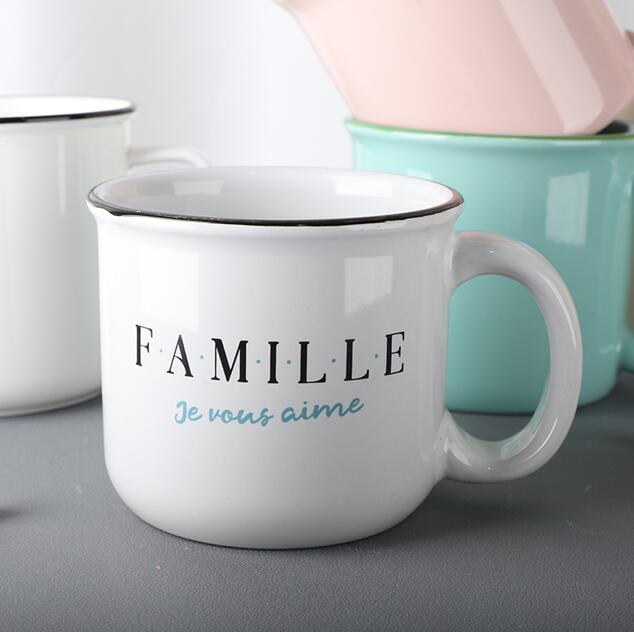
1.Ceramic: The Top Choice for Warmth and Comfort
Excellent Heat Retention: Ceramic is arguably the best material for drinking hot milk. Its thick walls are great at retaining heat, which means your milk stays warm for a
longer time compared to other materials. This is particularly important for those who like to savor their warm milk slowly without worrying about it cooling too quickly.
Comfortable to Hold: Ceramic mugs often have a comfortable grip, which makes holding a warm mug of milk more pleasant. The material's natural insulating properties
also ensure the outside of the mug doesn't get too hot to handle, making it easier to hold even when your milk is at the ideal drinking temperature.
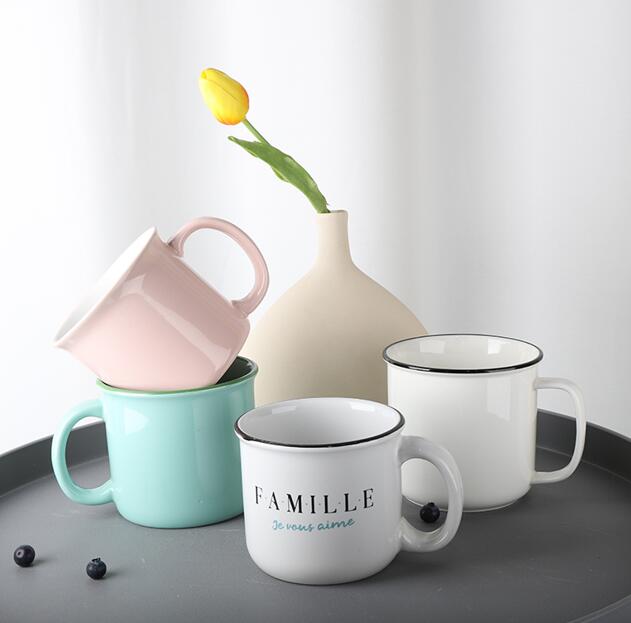
Neutral Taste: Ceramic is a non-reactive material, meaning it won't impart any flavors to your milk. This is crucial when you want the pure, comforting taste of hot milk
without any interference from the mug itself.
2.Glass: Elegant but Less Effective at Heat Retention
Stylish and Transparent: Glass mugs are a popular option for drinking hot milk because they are visually appealing and allow you to see the creamy texture of the milk.
This transparency can enhance the sensory experience of drinking milk.
Poor Heat Retention: Glass is not as effective at retaining heat as ceramic, meaning your milk is likely to cool down faster in a glass mug. If you prefer your milk to stay
warm for an extended period, glass may not be the best choice.
Taste Neutrality: Like ceramic, glass doesn't alter the taste of your milk, allowing you to enjoy the full flavor without any interference. However, it's important to choose
glass that is heat-resistant to avoid cracking when exposed to high temperatures.
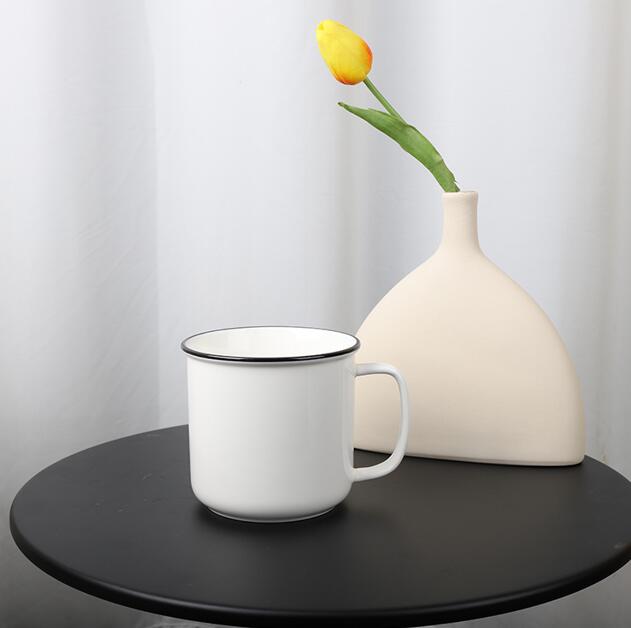
3.Stainless Steel: Durable with Moderate Heat Retention
Durability and Modern Design: Stainless steel is a strong, durable material that can withstand rough handling, making it an excellent choice for those who need a sturdy mug
that can survive drops or everyday wear and tear. Many stainless steel mugs come with a sleek, modern design, offering an updated look for your hot milk.
Moderate Heat Retention: Stainless steel has decent heat retention, especially in double-walled insulated versions, which help keep your milk warm for longer. However, it
still doesn't compare to ceramic when it comes to heat retention for long periods.
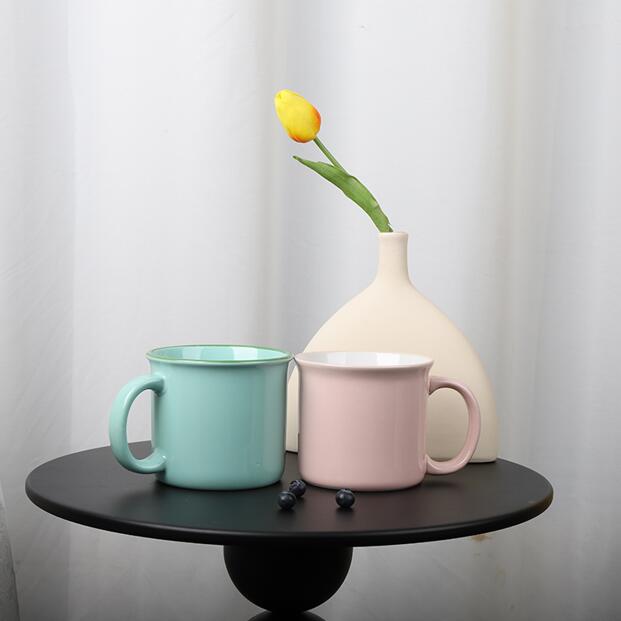
Potential for Metallic Taste: One downside of stainless steel is that it can impart a slight metallic taste, especially when your milk is very hot. This may not be noticeable
for some, but if you're sensitive to the taste of the material, it could affect your enjoyment of the milk.
4.Bamboo or Wooden Cups: Eco-Friendly, but Not Ideal for Hot Liquids
Sustainability: Bamboo and wooden mugs are great choices for those looking for eco-friendly options. These materials are natural, biodegradable, and sustainable. However,
they are not typically designed to retain heat like ceramic or glass.
Heat Insulation Issues: Bamboo and wooden mugs can absorb heat, which means the milk may cool down quickly. They also might not offer the same level of comfort or
insulation as other materials, making them less suitable for drinking hot liquids.
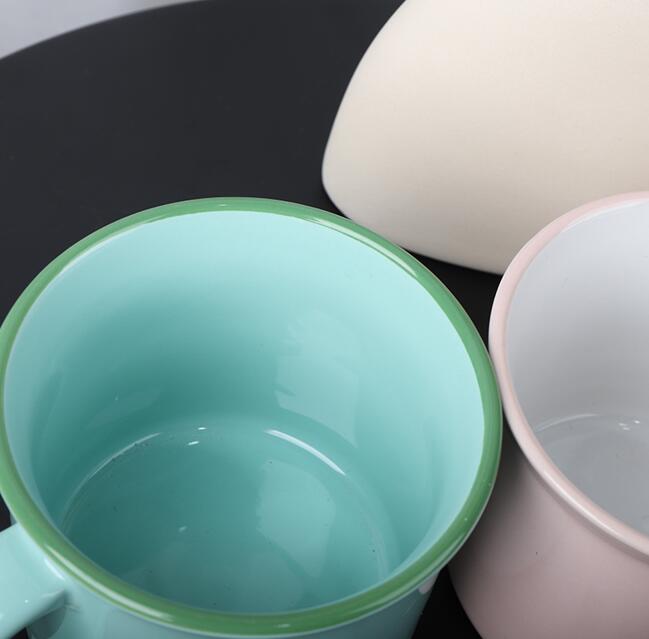
Unique Aesthetic: While they provide a unique and rustic aesthetic, bamboo and wooden mugs may require special care to avoid cracking or absorbing odors. They're best
suited for room-temperature or cold beverages rather than hot milk.
5.Plastic: Least Ideal for Hot Milk
Heat Sensitivity: Plastic is not a great choice for hot milk, especially if you're heating it in a microwave. Plastic mugs can warp, discolor, or even leach harmful chemicals into
your drink when exposed to high temperatures.
Flavor Absorption and Chemical Leaching: Plastic can absorb flavors and odors from previous drinks, which may affect the taste of your milk. Additionally, low-quality plastics
can leach chemicals when exposed to hot liquids, making it an unsafe option for hot beverages.
Environmental Concerns: While plastic is lightweight and inexpensive, it is not the most environmentally friendly option. Many plastics are not recyclable and contribute to
waste, making it less desirable from a sustainability perspective.
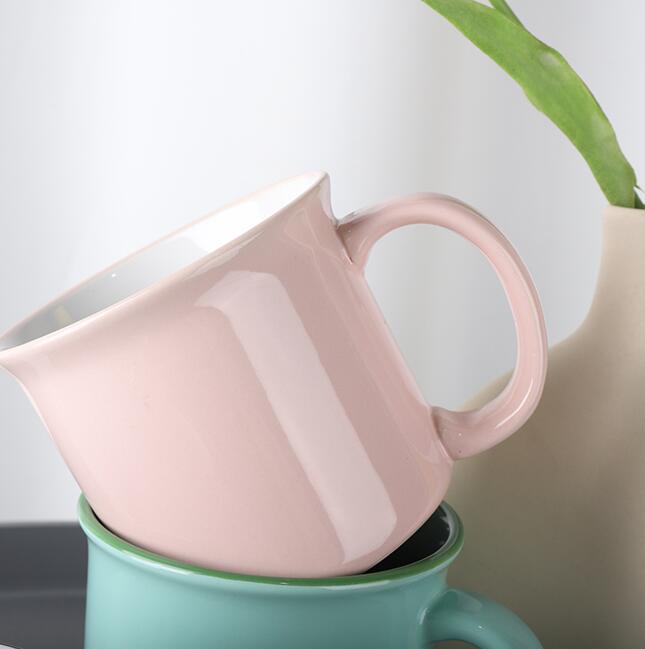
When it comes to drinking hot milk, ceramic milk mug is the undisputed best choice. Its excellent heat retention, comfort, and neutral taste make it ideal for keeping your milk warm
and enjoyable for longer periods. Glass offers a stylish alternative but lacks in heat retention, while stainless steel provides durability and moderate heat insulation with the
potential downside of a metallic taste. Bamboo or wooden mugs are eco-friendly but are not as effective at retaining heat for hot milk, and plastic should generally be avoided
due to health concerns and its poor heat-resisting properties.
Ultimately, for a warm, enjoyable milk-drinking experience, a ceramic mug is your best bet. Not only does it enhance the sensory qualities of your milk, but it also ensures a
comfortable, long-lasting, and flavorful drinking experience.